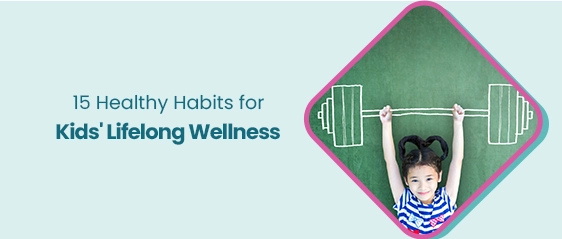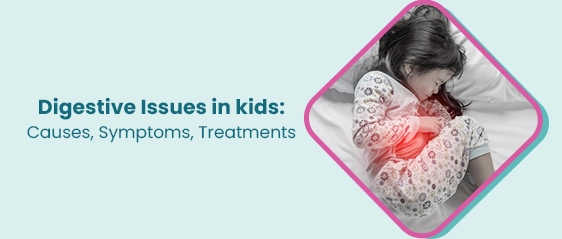
Healthy Habits for Women: Nutrition, Exercise, and Mental Well-being
- 14 Aug 2023
Maintaining good health is essential for everyone, but it holds particular significance for women due to their unique physiological and hormonal changes. Healthy habits encompassing nutrition, exercise, and mental well-being can empower women to lead fulfilling lives and achieve their personal and professional goals. This blog explores a comprehensive guide to adopting these healthy habits to support women's well-being and Health Makeover Tips For Women.
Nutrition: Nourishing Your Body
A balanced diet is crucial to women's health, providing the nutrients for energy, hormonal balance, and overall vitality. Here are some critical aspects of a healthy nutritional regimen:
Variety is Key: Include a wide range. Your diet should include many fruits, vegetables, whole grains, lean meats, and healthy fats. To ensure you're getting a diverse array of nutrients.
Stay Hydrated: Water is essential for various bodily functions, so drink an adequate amount throughout the day.
Calcium and Vitamin D: These nutrients are vital for bone health. Incorporate dairy products, leafy greens, and fortified foods into your diet.
Iron-Rich Foods: Women are more prone to iron deficiency, especially during menstruation. Include lean meats, beans, lentils, and dark leafy greens to ensure proper iron intake.
Healthy Snacking: Opt for nutritious snacks like nuts, seeds, yoghurt, and fruits to keep your energy levels stable between meals.
Exercise: Empowering Your Body
Your diet includes fresh produce, whole grains, lean proteins, and healthy fats, reduces stress, and boosts mood. Here's how to make exercise a habit:
Find Enjoyable Activities:
Choose exercises you enjoy, whether dancing, yoga, swimming, or strength training. This increases the likelihood of sticking to your routine.
Cardiovascular Exercise:
Plan to engage in at least 75 minutes of intense or 150 minutes of moderate exercise per week.
Strengthening:
Include exercises that will boost your muscles.
Mass, improve metabolism, and support bone health.
Flexibility and Balance: Yoga and Pilates enhance flexibility, balance, and mental relaxation.
Consistency: Schedule regular workouts and treat them as essential appointments to ensure you stay on track.
Mental Well-being: Nurturing Your Mind
A healthy mind is fundamental for overall well-being. Prioritize these practices for mental wellness:
Monsoon Wellness Empowering Mental Health and Self-Care for Women.
Mindfulness and Meditation: These practices help manage stress and anxiety and improve overall emotional well-being.
Aim for 7-9 hours of sound sleep each night.
Per night to rejuvenate your mind and body.
Social Connections: Maintain solid social bonds with friends and family. Positive relationships contribute to better mental health.
Time Management: Organize your time effectively to reduce stress and create space for leisure activities.
Seek Help When Needed: If you're struggling with your mental health, don't hesitate to contact a mental health professional.
Advantages of Healthy Habits:
Improved Physical Health:Embracing a balanced diet and regular exercise can lead to better cardiovascular health, weight loss, and lowered risk of developing chronic conditions, including diabetes.
Hypertension and enhanced overall vitality.
Hormonal Balance: Proper nutrition and exercise can contribute to maintaining healthy hormonal levels, thereby mitigating issues related to menstrual cycles, menopause, and reproductive health.
Stronger Bones: Adequate calcium intake and weight-bearing exercises can promote strong bones, reducing the risk of osteoporosis and fractures.
Enhanced Mental Well-being: Healthy habits are linked to better mental health, reducing the risk of anxiety, depression, and mood disorders. Additionally, exercise causes the release of endorphins.
Boosting mood and reducing stress.
Increased Confidence: Exercising fitness goals and self-care can improve body image and self-esteem.
Cognitive Function: Regular exercise and a balanced diet are linked to improved mental health and a decreased incidence of cognitive ageing as women age.
Disadvantages of Unhealthy Habits:
Increased Health Risks: Poor nutrition and lack of exercise contribute to a higher risk of obesity, diabetes, heart disease, and other chronic health issues.
Hormonal Imbalances: Unhealthy habits can disrupt hormonal balance, leading to irregular menstrual cycles, fertility issues, and complications during menopause.
Bone Health Issues: Inadequate calcium intake and sedentary lifestyles can lead to weak bones and an increased susceptibility to fractures.
Mental Health Challenges: Neglecting mental well-being can increase stress, anxiety, and depression and reduce overall quality of life.
Low Energy Levels: Poor nutrition and lack of exercise can lead to fatigue and decreased energy levels, impacting daily activities and productivity.
Reduced Self-esteem: Unhealthy habits can contribute to negative body image and low self-esteem, affecting confidence and interpersonal relationships.
Causes:-
Lack of Time: Busy schedules often hinder adopting healthy habits. Prioritize activities, create a routine, and delegate tasks to make time for exercise and meal planning.
Unhealthy Food Environment: Easy access to unhealthy foods can sabotage efforts. Stock your environment with nutritious options and practice mindful eating.
Sedentary Lifestyle: Desk jobs and screen time contribute to a sedentary lifestyle. Incorporate movement breaks, stand while working, and engage in regular physical activity.
Emotional Eating: Stress and emotions can trigger unhealthy eating habits—practice stress management techniques like meditation, yoga, and deep breathing.
Lack of Motivation: Find a workout buddy, set achievable goals, and track your progress to stay motivated.
Social Pressure: Peer influence and societal norms can affect lifestyle choices. Surround yourself with supportive individuals who value health and well-being.
Conclusion
Incorporating these healthy habits into your daily routine supports your physical, mental, and emotional well-being as a woman. Remember that small, consistent changes can significantly improve your overall quality of life. Prioritize self-care, nourish your body, stay active, and nurture your mind to lead a fulfilling and empowered life.
Frequently Asked Questions
Why is nutrition important for women's health?
Nutrition provides essential nutrients that fuel your body, support hormonal balance, and help prevent health issues. It affects energy levels, bone health, and overall well-being.
What should I eat for a balanced diet?
Focus on fruits, vegetables, whole grains, lean proteins, and healthy fats. Stay hydrated and limit processed foods, sugary snacks, and excessive caffeine.
How does exercise benefit women?
Exercise improves cardiovascular health, helps manage weight, reduces stress, and boosts mood. It also supports bone health and promotes overall vitality.
What types of exercises should women do?
A mix of cardiovascular exercises (like walking and jogging), strength training (using weights or body weight), and flexibility exercises (yoga, stretching) are ideal for a well-rounded routine.
How often should I exercise?
Aim for at least 75 minutes of severe or 150 minutes of moderate aerobic exercise per week.
Along with muscle-strengthening exercises on two or more days.
How does mental well-being affect women's health?
Mental well-being impacts emotional health, stress levels, and overall quality of life. Practising mindfulness, managing stress, and getting enough sleep are essential.
What can I do to improve my mental well-being?
Engage in activities you enjoy, practice mindfulness or meditation, maintain social connections, ensure adequate sleep, and seek professional help when needed.
What are the advantages of healthy habits?
Healthy habits lead to improved physical health, balanced hormones, stronger bones, enhanced mental well-being, boosted confidence, and better cognitive function.
Are there any disadvantages of unhealthy habits?
Unhealthy habits can lead to increased health risks (like obesity and heart disease), hormonal imbalances, bone health issues, mental health challenges, low energy levels, and reduced self-esteem.
How can I overcome challenges in adopting healthy habits?
Prioritize your time, stock a healthy food environment, incorporate movement breaks, manage emotional eating, find motivation through goals and support, and surround yourself with like-minded individuals.
Can healthy habits help with menstrual and menopausal issues?
Yes, proper nutrition and exercise can contribute to balanced hormones, easing menstrual discomfort and supporting a smoother transition through menopause.
Is it essential for women of all ages to follow these habits?
Yes, healthy habits are beneficial for women of all ages. They help prevent health issues, support hormonal changes, and contribute to a higher quality of life at every stage.



